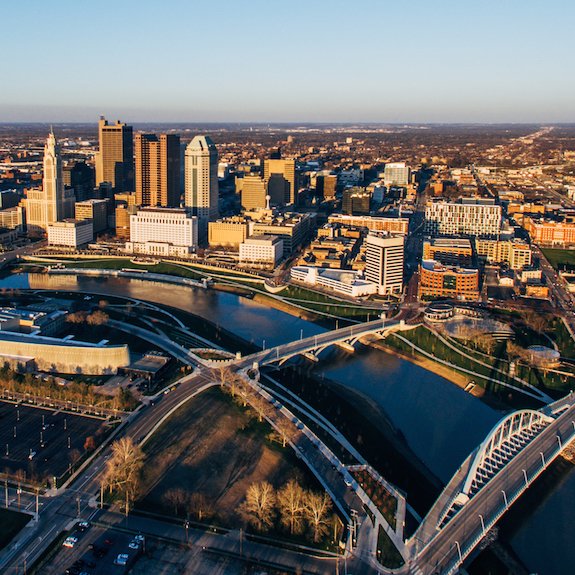What does it mean to be a Smart City? New details on $50M grant released

Last week Columbus won the massive $50 million Smart City grant financed by the federal government and Microsoft co-founder Paul Allen’s company, Vulcan Inc.
The grant aims to turn Columbus into what WIRED Magazine called “the city of the future” through a massive transportation overhaul, but what exactly does that mean in practice?
New details released yesterday via documents obtained by The Guardian offer some insight.
One of the keystones of Columbus’ application for the grant was an all-encompassing transportation app–for busses, ride-sharing, bike rentals, navigation and payment.
Turns out that Sidewalk Labs, a subsidiary of Alphabet, Google’s parent company, is developing a cloud-based app called “Flow Transit” that they’re trying to get Columbus to use for that purpose.
More interesting (and more futuristic) is the vision for parking in Columbus.
Sidewalk Labs intends to use camera-equipped self-driving cars to catalogue every parking space in Columbus, using data from parking meters to show app users where they think an open spot will be.
About 30 percent of traffic is estimated to be caused by drivers looking for parking, so the new system could help ease congestion on the roads.
Eventually, the company hopes to convince private garages to open up their unused spaces to the new “virtualized parking” system, and to charge variable rates based on demand. For example, spaces near the convention center would be more expensive if there’s an event going on.
The downside for drivers: the app also has an “optimized parking enforcement” module, which would calculate the optimal route for meter readers to monitor illegal parking. Sidewalk Labs says a medium-sized city could generate $4 million a year in fines.
Columbus would receive one percent of the revenue generated from Flow Transit, estimated at around $2.25 million per year.
The new system is undoubtedly very cool, though some have expressed concerns about Alphabet’s effective monopoly on data and money collected from the Flow Transit app.
What do you think of Sidewalk Labs’ smart city vision? Think Columbus should buy in? Tell us in the comments below or on Twitter @614NOW!
[su_button url=”https://www.theguardian.com/technology/2016/jun/27/google-flow-sidewalk-labs-columbus-ohio-parking-transit” target=”blank” background=”#e50403″ size=”6″]Read More[/su_button]
BROUGHT TO YOU BY




